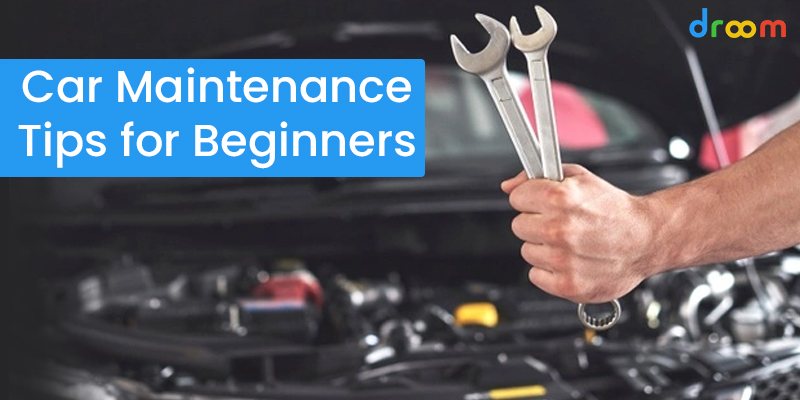Having a new car in today’s fast-paced world is very crucial and important irrespective of the purpose for which one uses his/her car; whether it be for traveling or tourism, for business purposes, or on any other occasion. The longevity and performance of a vehicle should be most important since regular maintenance is required not only for the status of the car but also for your safety and the overall reliability of your car. This article will give an overview of the right maintenance procedures any car owner should master, focusing on creating a cost-effective approach to servicing their new cars.
In this article, we will cover some of the key tips to master regular servicing for new cars. Here are the key points we’ll cover:
1. Understanding the Importance of Regular Maintenance for New Cars
2. Essential Maintenance Practices
3. Creating a Maintenance Schedule for New Cars
4. Utilize Expert Technicians
5. Proactive Measures for Optimal Performance in New Cars
6. Creating a User-Friendly Maintenance Experience
7. Cost-Effective Maintenance Strategies
8. The Impact of Maintenance on Vehicle Longevity
9. Safety Standards and Compliance
10. Conclusion
Understanding the Importance of Regular Maintenance for New Cars
Maintenance is not only important for the good looks of the car, but it also improves its reliability and performance. There is no doubt that a properly maintained car runs better, and that keeping up with the recommended routine service saves money in the long run. Maintenance and following a maintenance schedule would enable car owners to notice these issues at an early stage and avoid getting a huge bill.
Benefits of Regular Servicing
- Enhanced Safety: Regular inspections and maintenance checks help identify potential safety hazards before they become critical issues.
- Improved Performance: Regularly servicing your car also helps to keep them in their most efficient manner with regard to performance and fuel consumption.
- Extended Lifespan: Take good care of your car and seek help from auto professionals on time to extend its lifespan.
- Cost Savings: Although service costs require some money to be spent, this is way cheaper than repairing a heavily damaged car resulting from a lack of service.
- Resale Value: A car in good condition, with records of its service history, will interest more potential consumers than one without and will be easier to sell at a better price.
Essential Maintenance Practices for New Cars
For effective regular car maintenance, the owners should pay attention to certain areas, which should be overemphasized since it would help in maintaining the car’s good condition and assure that the inspections are done at the right time. Here are some essential maintenance practices every new car owner should be aware of:
1. Oil Changes
The most important aspect of car maintenance is regular oil changes since they reduce friction between the moving parts in your car’s engine. Over time, the engine oil degrades and gets compromised by deposits that interfere with its efficiency.
Best Practices:
- Check the manual provided by manufacturers for the recommended oil change interval.
- Use the grade and type of oil specified by the manufacturer.
- There should be records kept of the oil changes documented in the service logs.
Change your car’s engine oil typically every 5,000 to 7,500 miles.
2. Tire Maintenance
Proper tire maintenance is critical for you and your family's safety, as well as enhancing the car's overall performance and fuel efficiency.
Key Tasks:
- Check tire pressure regularly, including the spare.
- Ensure your tires are inflated to the recommended pressure.
- Check the tread depth regularly and replace worn tires.
- Have your wheels aligned periodically to prevent uneven tire wear.
3. Brake System Checks
If you let experienced mechanics conduct regular checks for your car’s braking system, you can be safe from pretty dangerous circumstances.
Maintenance Tips:
- Always check whether the brake fluid is enough and replace it when required.
- Look for such symptoms as odd sounds or any other change in the braking systems.
- Make sure you set your brakes for proper functioning at least twice a month.
4. Electrical System
A well-functioning electrical system is essential for the safe and reliable operation of your car. This means that even if there are problems that result in an electric breakdown, risk factors would have been prevented after the maintenance check.
Care Instructions:
- Keep your car’s battery terminals clean and free of corrosion.
- Check battery fluid levels to keep your car's systems running smoothly (if applicable).
- Have your car’s battery tested periodically, especially before extreme weather conditions.
- Ensure all lights and signals are working properly.
5. Air Filter Replacement
A clean air filter means your car’s engine gets the right amount of fresh air, leading to improved performance, fuel efficiency, and reduced emissions.
Instructions:
- Locate the air filter: Refer to your owner's manual to identify the location of the air filter housing. It is usually fitted near the engine compartment.
- Open the housing: Any clips, latches, or screws securing the air filter housing will need to be removed.
- Remove the old filter: Pull the old air filter out very gently. Check it for deposit signs for dirt, debris, and signs of wearing out, among other things.
- Inspect the housing: Check the air filter housing for any obstructions or damage. Clean it if necessary.
- Install the new filter: Place the new air filter well into the housing and make sure it sits properly and firmly into place.
- Close the housing: If the housing used clamps, latches, or screws to secure the air filter in place, then close it by engaging them now.
Creating a Maintenance Schedule for New Cars
A maintenance schedule is used to organize, plan, and coordinate the activities that are involved in equipment maintenance to ensure that everything is planned and is working properly. By having a structured maintenance schedule, car owners can not only reduce unscheduled downtime but also resolve problems even before they arise.
The main maintenance plan is to see that your new car is effectively serviced on time. Many factors need to also be taken into consideration, of which the most important one is the schedule set according to the owner’s manual and habits of the driver.
1. Components of an Effective Maintenance Schedule:
- Regular Checks: Enumerate items that require regular inspection, including oil levels, tire pressure, and other similar things.
- Periodic Services: Specify services that should be done, for instance, in a certain number of miles or kilometers, for example, the oil change and tire rotation.
- Seasonal Preparations: Include subtasks on preparations of your car for both winter and summer.
- Major Services: Note when major services are due, such as timing belt replacement or transmission service.
2. Tools for Tracking Maintenance:
- Digital apps for maintenance tracking
- Traditional service logbooks
- Calendar reminders for upcoming services
3. Utilize Expert Technicians
There are certain tasks that are only performed by car technicians, as they have the expertise to perform complex tasks. Car experts can easily diagnose issues that may not be apparent to an average car owner. Periodically visiting a trusted mechanic can also ensure that your car receives expert recommendations tailored to its unique needs. Certified technicians ensure maintenance complies with manufacturer guidelines, preserving your warranty. Also, they keep you informed about the latest automotive technologies, features, and recalls.
Proactive Measures for Optimal Performance in New Cars
To minimize the possibilities of unexpected breakdowns and expensive repairs, car owners should adopt a proactive approach. As for maintenance, this approach here does not only mean sticking to the maintenance schedule but also paying attention to your new car’s performance and solving potential issues at an early stage.
1. Preventive Maintenance
Preventive maintenance stands as one of the most effective solutions in guaranteeing your vehicle is not likely to have a breakdown. Preventive maintenance includes:
- Fluid Flushes: Maintaining its fluids can prevent the system from accumulating and guarantee that it operates at its best.
- Belt and Hose Inspections: Replace immediately after detecting cracks or signs of wear in order to prevent breakdowns.
2. System Monitoring
It is always important to check the performance of your new car, and the best way of doing this is to use monitoring systems to be able to identify if there are any performance problems. Today there are lots of cars that are equipped with on-board diagnostics, which signal the driver if there is something wrong. Learn more about these alerts, and be sure to act quickly whenever there is a warning.
3. Regular Checkups
Taking your car for a regular checkup is as important as taking yourself for a routine checkup. One should schedule inspections that are carried out by a professional technician to check if all systems are functioning efficiently. Such assessments can reveal characteristics or flaws that are not apparent during daily inspections.
Creating a User-Friendly Car Maintenance Experience
It is always good to have a happy story when it comes to the maintenance of a new car. So this makes it essential for car owners to have thorough information and the right tools to maintain their car’s efficiency and condition. Here are some strategies to enhance your maintenance experience:
- Use Digital Maintenance Apps - In the present generation, there are so many friendly applications that can be used for vehicl maintenance. Such apps are useful in scheduling services, making sure you are notified of a particular service that requires it to be done, and also can be useful in noting down the details of the particular services. You can make sure that the maintenance of your car is done in a timely and orderly manner by using technology.
- Engage in User Education - Having complete information about your car’s condition is a critical factor in vehicle maintenance and ownership. It’s time you engage in educational resources to save yourself from any hassle. These include things like manuals, forums, or educational material to learn more about a particular car’s requirements. Having this information will help a person to carry out routine maintenance tasks independently and, at the same time, objectively assess when it is necessary to turn to specialists.
- Follow Manufacturer Recommendations - Almost each and every manufacturer provides maintenance recommendations and guidelines along with a new car. These recommendations should be followed by car owners to prevent violations and get the best out of their cars. You should know, for example, about its recommended service frequency and the kinds of fluids and parts that must be used.
Cost-Effective Maintenance Strategies for Any Car Owner
Regular maintenance is essential, but it does not have to be expensive. It is possible to associate different measures that would make maintenance inexpensive without the quality of the equipment being affected. If you start fixing small problems before they become major, you will save money and have a smoother ride throughout the year. Here are some effective approaches to consider:
- Group Services - In scheduling the maintenance, the services to be rendered should be grouped in order to save both time and money. For instance, if the vehicle requires an oil change, you can take advantage and have other procedures such as tire rotation or oil change. This approach reduces not only time but can often result in cost savings.
- DIY Maintenance - Some of the activities can however be easily done by car owners, and this will not only help them to save time but also some amount of money. Easy procedures such as wiper blade replacement, inflating tires, and adding fluids can be performed, and they help in delaying the next professional service.
- Look for Discounts and Promotions - Almost every dealership and the auto repair shop offer discounts, loyalty programs, and benefits quarterly to increase their sales. New car owners should take advantage of these services, as they can be extremely useful to reduce maintenance costs. This also ensures that your car is serviced by the experts.
The Impact of Maintenance on Vehicle Longevity
Car maintenance goes beyond simply managing a car’s performance and is also extremely necessary for your car's lifespan. A car that has been maintained properly can accelerate up to 200,000 miles, whereas a neglected one might struggle to be driven longer.
Factors That Boost A Car’s Longevity:
- Timely Belt Replacements: Parts like the timing and serpentine belts wear out over time. Replacing them before they break helps avoid major engine damage and expensive repairs.
- Preventing Rust: It is important to wash your car, especially the undercarriage, as this will protect the car from rust since rust is one of the main causes of the body and chassis to weaken.
- Transmission Maintenance: Regular fluid changes and checks are crucial to keeping the transmission running smoothly. Accurate transmission care can help avoid damages that would require repair and also maintain one of the most important parts of a car.
Safety Standards and Compliance of Cars
Regular maintenance isn't just about performance and longevity; it's also crucial for safety. Many maintenance tasks directly impact your car's safety features and overall roadworthiness.
Safety-Critical Maintenance Areas:
- Brake System: Regular inspections and timely replacements ensure optimal stopping power.
- Lighting: To maintain visibility, replace the headlight, taillight, and indicator bulbs frequently so that the car is well illuminated.
- Windshield Wipers: Proper maintenance of your wipers will help you to have proper visibility during the rain or when it is snowing.
- Suspension Components: Check your suspension system regularly for stable handling and a comfortable ride.
Conclusion
Mastering regular servicing and maintenance for your new car is not just about following a schedule; rather, it is more about making it a habit. It is more like an investment in safety, performance, and longevity. By understanding the significance of routine upkeep, following a well-planned maintenance schedule, and combining DIY checks with professional servicing, you can ensure your vehicle's optimal performance, safety, and longevity.
Remember, every moment spent on maintenance is an investment in your car's future. It not only saves you money in the long run but also provides peace of mind, knowing that your vehicle is in the best possible condition. By staying informed and engaged, you can enjoy the full benefits of your new car, ensuring it serves you well for many years to come.
Embrace the responsibility of car ownership and let your commitment to maintenance be the key to unlocking your car's full potential.












